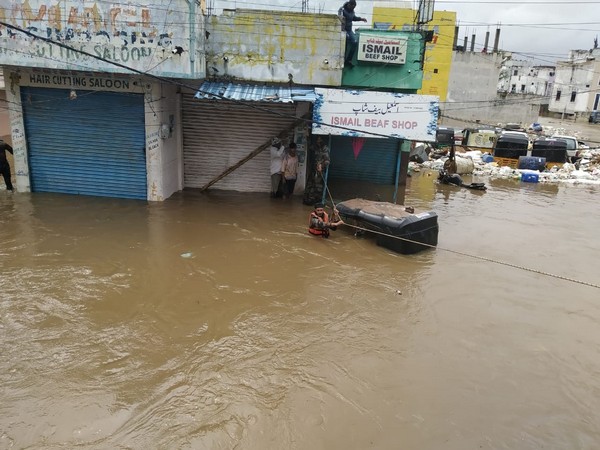Patna emerges as India's most flood-prone city, reveals recent study
IIT researchers developed a flood severity index, revealing Patna as India's most flood-prone district, followed by Murshidabad and Thane. The top 10 districts face extreme flood severity, including North 24 Parganas, Guntur, Nagpur, Gorakhpur, Ballia, East Champaran, and East Medinipur. The Ganga basin has the highest population and flood risk, with 17 of the 30 highly vulnerable districts located there. Assam experiences numerous floods, while Thiruvananthapuram has faced over 231 floods since 1967. Climate change may increase flood frequency, including flash floods in localized areas. Despite growing population, fatalities have stabilized due to improved management practices.

- Country:
- India
Patna experiences the worst floods in India, followed by West Bengal's Murshidabad and Maharashtra's Thane, according to a district-level flood severity index (DFSI) developed by researchers at IIT-Delhi and IIT-Roorkee.
The index takes into account the historical severity of floods based on the number of affected people, the spread and duration of floods.
The researchers said the top 10 districts where flood severity is the highest are: Patna, Murshidabad, Thane, North 24 Parganas (West Bengal), Guntur (Andhra Pradesh), Nagpur (Maharashtra), Gorakhpur (Uttar Pradesh), Ballia (Uttar Pradesh), East Champaran (Bihar), and East Medinipur (West Bengal).
These are followed by Muzaffarnagar (Bihar), Lakhimpur (Assam), Kota (Rajasthan), Aurangabad (Maharashtra), Malda (West Bengal), Rajkot (Gujarat), Prayagraj (Uttar Pradesh), Aurangabad (Bihar), Bahraich (Uttar Pradesh), Ahmedabad (Gujarat), Jalpaiguri (West Bengal), Darjeeling (West Bengal), Dibrugarh (Assam), Azamgarh (Uttar Pradesh), Chamoli (Uttarakhand), West Champaran (Bihar), Amravati (Maharashtra), Medinipur West (West Bengal), and Samastipur (Bihar).
Though Chamoli in Uttarakhand does not face recurrent floods, it appears on this list because of a few isolated highly damaging flood events.
Among the 30 districts facing the highest risk of floods, 17 are in the Ganga basin and three are in the Brahmaputra basin.
Among all the Indian river basins, the Ganga basin has the highest population, and its high flood proneness is worrisome, said the researchers, including Manabendra Saharia, an assistant professor at IIT-Delhi.
Assam experiences the highest number of floods in India, having faced more than 800 flood events over 56 years. The other flood-prone states, in descending order of flood events, include Kerala, Karnataka, Uttar Pradesh, and Maharashtra.
Data from 1967 to 2023 shows that Thiruvananthapuram has experienced more than 231 floods or more than four events per year on average. Five districts -- Thiruvananthapuram, Lakhimpur, Dhemaji, Kamrup, and Nagaon -- have been categorised as ''severely flood-prone,'' having recorded more than 178 floods, or more than three events per year on average.
The researchers said localised intense rainfall events are likely to rise in the future due to climate change, and therefore, more flash floods are expected.
Under the warming climate, the frequency of cyclones will increase, and coastal and nearby inland areas will face more instances of intense rainfall and floods. It is also likely that areas that are not currently flood-prone may begin to see flooding.
The researchers said human fatality due to floods is nearly stable or has come down in recent times due to better management despite an increase in the population in India.
The number of deaths is around 1,000 per year since 2015, the data showed.
(This story has not been edited by Devdiscourse staff and is auto-generated from a syndicated feed.)










